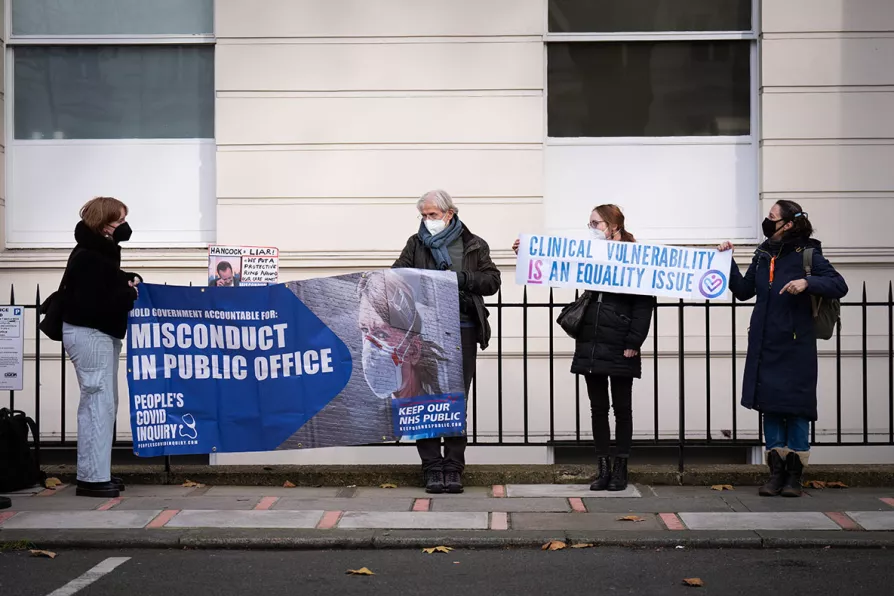Workers ‘killed by their class’ during Covid, say STUC

 Bereaved families demonstrate outside Dorland House in London, to protest the fact they are being excluded from the Covid-19 Inquiry as former health secretary Matt Hancock gives evidence, November 21, 2024
Bereaved families demonstrate outside Dorland House in London, to protest the fact they are being excluded from the Covid-19 Inquiry as former health secretary Matt Hancock gives evidence, November 21, 2024
LOW-PAID workers were “killed by their class” as they fought to keep services running during the pandemic, the STUC told the Scottish Covid-19 inquiry today.
General secretary Roz Foyer’s stark judgement came as she appeared before the inquiry for a second time, citing the class-ridden effects of the virus across the board.
STUC evidence submitted to the inquiry showed that those from lower social classes were more likely to be killed during the pandemic compared to their wealthier peers.
Similar stories

The NHS continues to say Covid spreads primarily through ‘droplet and touch’ while the WHO emphasises airborne transmission, meaning vulnerable patients and healthcare workers face unnecessary risks, reports RUTH HUNT

From education to care sector struggles, Scotland’s women workers must build up a resistance network on all fronts and drive their unions’ demands for transformative change to victory, writes STEPHANIE MARTIN












